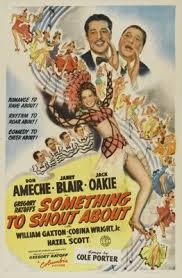
Hollywood On 52nd Street
You’d Be So Nice To Come Home To is a popular song that became a jazz standard. Written by Cole Porter it premiered in the 1943 film Something To Shout About, nominated for two Oscars and introduced by Janet Blair and Don Ameche.
The Story: The movie takes place behind the scenes of a fictional vaudeville play and centers on a recently divorced woman. She decides to use her alimony settlement to produce her own show. Unfortunately her chief backer insists on starring in it but she is saved when a talented man puts everything at risk to replace the talentless chief backer.
Sponsored By
www.whatissuitetabu.com
More Posts: comedy,dance,drama,hollywood,instrumental,musical,suite ta bu,vocal
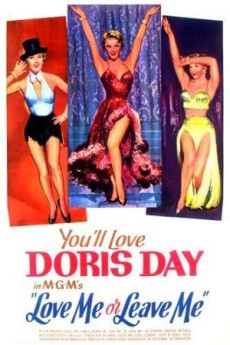
Hollywood On 52nd Street
I’ll Never Stop Loving You, composed by Nicholas Brodzsky and Sammy Cahn wrote the lyrics for the 1955 film Love Me or Leave Me. The film is a biographical romantic musical drama that retells the life story of Ruth Etting, a singer who rose from dancer to movie star.
Doris Day stars as Etting, James Cagney as gangster Martin “Moe the Gimp” Snyder, her first husband and manager, and Cameron Mitchell as pianist/ arranger Myrl Alderman, her second husband.
Sponsored By
www.whatissuitetabu.com
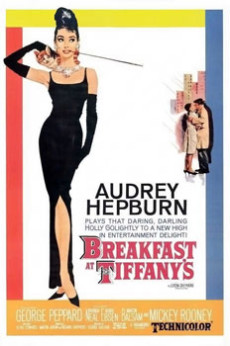
Hollywood On 52nd Street
Moon River is another jazz standard originally composed for Breakfast At Tiffany’s by Henry Mancini for music with lyrics written by Johnny Mercer. Blake Edwards directed this 1961 American romantic comedy that starred Audrey Hepburn and George Peppard with support from Patricia Neal, Buddy Ebsen, Martin Balsam and Mickey Rooney. The film is loosely based on Truman Capote’s novella of the same name.
Hepburn’s portrayal of Holly Golightly as the naïve, eccentric café society girl is generally considered to be the actress’ most memorable and identifiable role. However, Hepburn regarded it as one of her most challenging roles, since she was an introvert required to play an extrovert.
The song received an academy Award for Best Original Song for its first performance by Hepburn, won Mancini the 1962 Grammy Award for Record of the Year and Mercer a Grammy Award for Song of the Year.
Sponsored By
www.whatissuitetabu.com
More Posts: comedy,dance,drama,hollywood,musical,suite ta bu,vocal
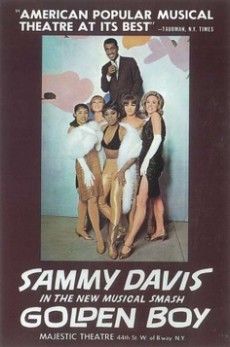
From Broadway To 52nd Street
Golden Boy opened the Majestic Theatre on October 20, 1964 starring Sammy Davis Jr., Billy Daniels, Paula Wayne, Johnny Brown, Lola Falana and Lou Gossett. Charles Strouse & Lee Adams composed the music from which Night Song was plucked to become a jazz standard for a show that ran 568 performances.
The Story: The play reflects the struggle of an ambitious young black man in America and focuses on Joe Wellington, a young man from Harlem who, despite his family’s objections, turns to prizefighting as a means of escaping his ghetto roots to find fame and fortune. He crosses paths with a Mephistopheles-like promoter Eddie Satin and eventually betrays his manager Tom Moody when he becomes romantically involved with Moody’s girlfriend Lorna Moon. In his quest for glory loses his soul and his life.
Broadway History: These innovations in lighting also made advertising on Broadway much more effective. The world’s first electrically lit large commercial billboard was erected over Madison Square in 1892. It read, “Buy Homes On Long Island/Swept By Ocean Breezes” and was paid for by the Long Island Rail Road. Though the sign had disappeared from the New York skyline by 1895, its brief exposure caught the eye of every business owner on Broadway, which by then included the square intersection at W. 42nd, Broadway, and 7th Avenue (the tourist-glutted hotspot we all know and love, “Times Square”, which was named after The New York Times in 1904, when the publication moved into its new headquarters building there, had decided to advertise with the new “spectaculars,” so called because of their large, complex light displays and intricate designs, some flashed, and some even had animated sections that moved.
Sponsored By
www.whatissuitetabu.com
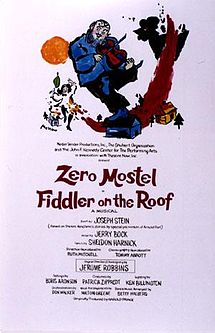
From Broadway To 52nd Street
Fiddler On The Roof opens the curtains at the Alvin theatre on September 22, 1964. Zero Mostel stars in this show that was the first musical to surpass 3000 performances. With 3, 242 it held the record for ten years and reigns as the 16th longest running show in Broadway history Jerry Bock & Sheldon Harnick composed the music for this Tony Award winning production. The tune from the show that would go on to rest alongside other great jazz classics was Matchmaker, Matchmaker.
The Story: In the Jewish village of Anatevka, Russia in 1905 the story follows the life of a dairyman Tevye, the father of five daughters and his attempts to maintain his family and Jewish religious traditions. While outside influences encroach upon their lives, he must cope both with the strong-willed actions of his three older daughters—each one’s choice of husband moves further away from the customs of his faith to finds happiness, love, and financial success through marriage. When all Tevye’s plans fall apart as Russia sustains a revolution, he must flee their destroyed village with his family to America while holding on to his faith and find his own happiness.
Jazz History: The Half Note located at 296 Spring Street on the corner of Hudson Street saw its peak years from 1957 to 1972. Established by Brooklyn-born Mike Canterino who while in the Nay in Florida befriended a local saxophonist named Cannonball Adderley, opened in a desolate location in New York City’s West Village, the club that had been a hard-drinking saloon dubbed the Zombie Bar was renamed and began booking jazz in 1957. Two things separated the Half Note from other clubs. Canterino intentionally integrated his lineups, and changed the industry’s 40-20 set-length standard (40 minutes on, 20 minutes off) by allowing musicians to play as long as they desired—often past the time his cabaret license permitted. Veteran blowers like Ben Webster could play all night long—and did—while experimentalists like Coltrane used the Half Note as a workshop of sorts, turning tunes like the legendary “One Down, One Up” into marathon workouts.
Sponsored By
www.whatissuitetabu.com


